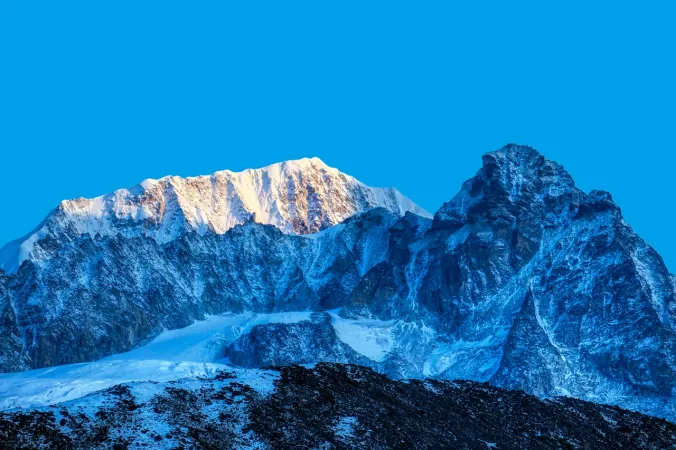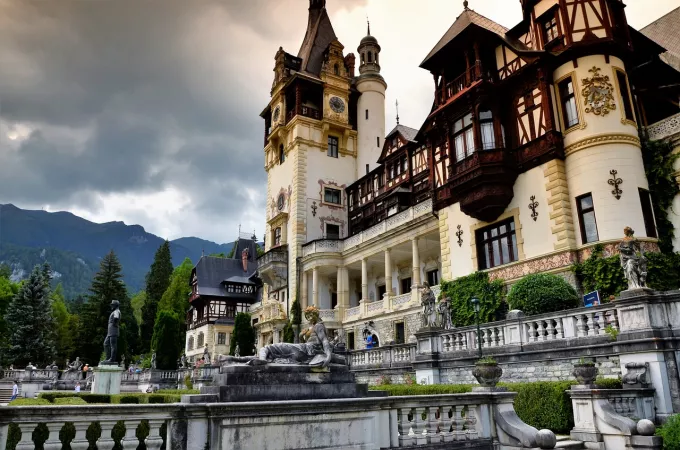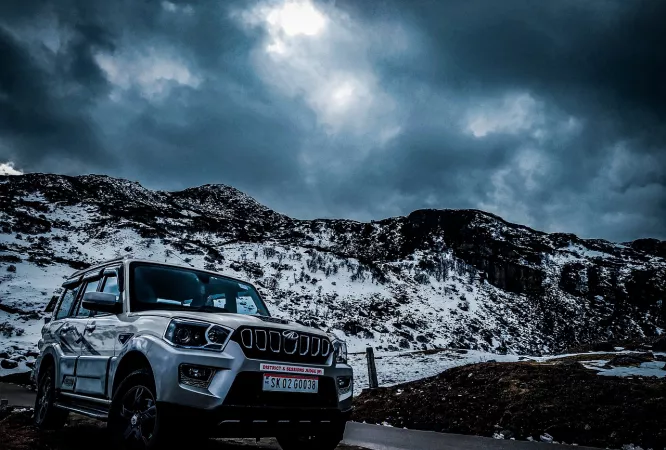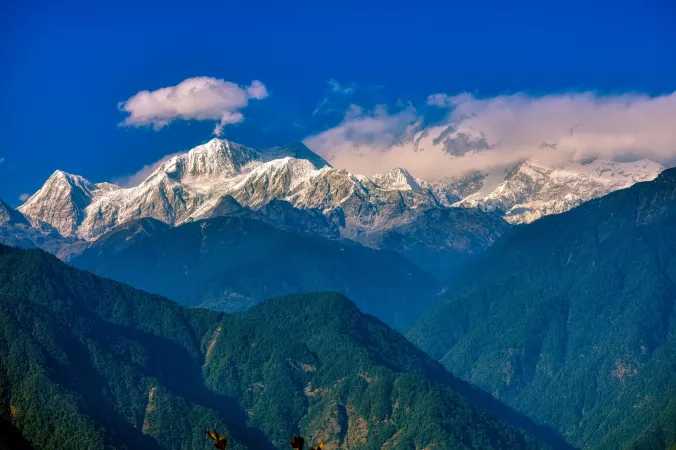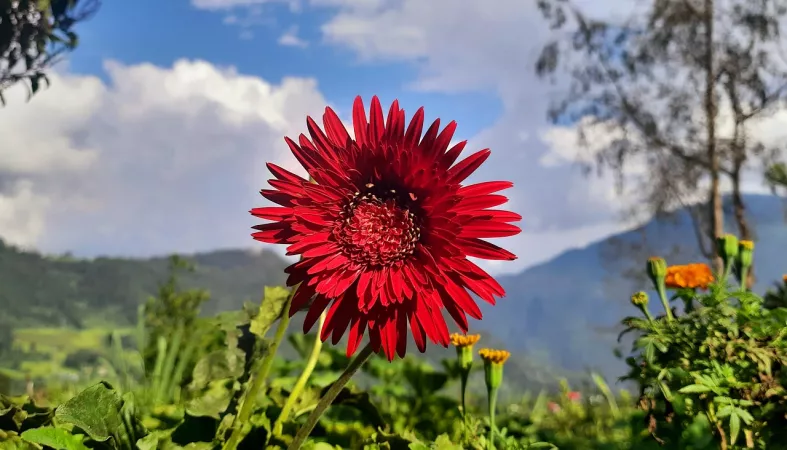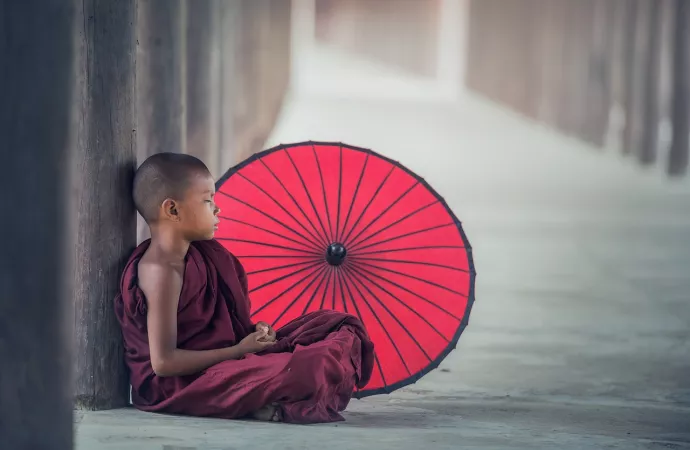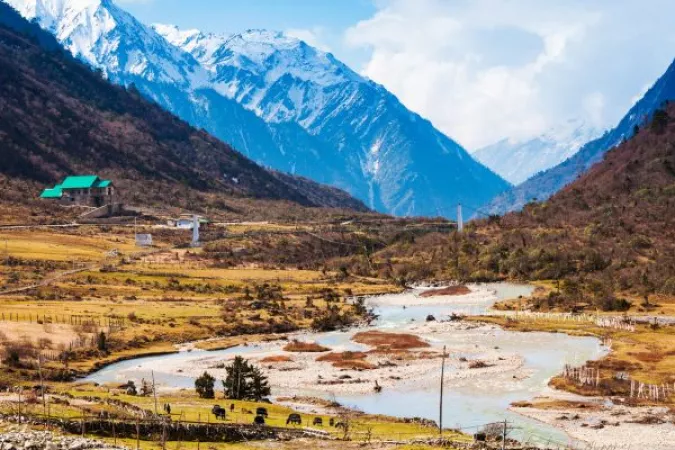Zuluk Travel Guide
Zuluk, a quaint village located in the East Sikkim district of India, is a hidden gem nestled in the Himalayas. This offbeat destination offers breathtaking views of the snow-capped mountains and lush green valleys. With a rich history as a stopover on the ancient Silk Route, Zuluk is steeped in cultural significance and natural beauty, making it a must-visit for travelers seeking a unique and peaceful retreat.Top Attractions in Zuluk
- Thambi View Point
- Nathang Valley
- Zig Zag Road
- Old Baba Mandir
- Kupup Lake
Zuluk is Famous for
Known for its stunning views of the Himalayas and the mesmerizing sunrise over the mountains, Zuluk is a paradise for nature lovers and adventure enthusiasts.Top Attractions in Zuluk
- Thambi View Point
- Nathang Valley
- Zig Zag Road
- Old Baba Mandir
- Kupup Lake
What's Great about Travelling to Zuluk?
- Peaceful and serene atmosphere
- Breathtaking views of the Himalayas
- Opportunity for adventure activities like trekking and bird watching
What's Not So Great about Travelling to Zuluk?
- Limited accommodation options
- Remote location with limited connectivity
- Harsh weather conditions during winters
Travel Tips for Zuluk
- Obtain necessary permits for visiting restricted areas
- Carry adequate warm clothing, especially during winters
- Be prepared for high altitudes and possible altitude sickness
Important Zuluk trip information
- Ideal Duration: 3-4 days to explore the main attractions
- Best Time to Visit: March to May and October to December for pleasant weather
- Nearby Airports and Railway Stations: The nearest airport is Bagdogra Airport and the closest railway station is New Jalpaiguri Railway Station
FAQ's on Zuluk
Q1: What is the best time to visit Zuluk?
The best time to visit Zuluk is from March to June and September to November. During these months, the weather is pleasant, and the views of the Himalayas are clear. Avoid visiting during the monsoon season (July and August) due to landslides. Winter (December to February) offers a unique experience with snowfall, but road closures are common. Consider visiting during the Silk Route Festival in October for a cultural experience.
Q2: Do I need a visa to travel to Zuluk?
Most visitors to Zuluk require an Inner Line Permit (ILP) to enter due to its proximity to the international border. Indian nationals can obtain the permit easily, while foreign tourists need to apply through a registered tour operator. Check the latest requirements as they may change.
Q3: What are the must-visit attractions in Zuluk?
Zuluk offers breathtaking views of the sunrise over the Kanchenjunga mountain range from Thambi View Point. Don't miss the Old Baba Mandir, the Zig Zag road, and the scenic Lungthung viewpoint. Explore the nearby villages like Nathang Valley and Kupup Lake for a taste of local culture.
Q4: Is Zuluk a safe place to travel?
Zuluk is generally safe for tourists. However, road conditions can be challenging, especially during winter. Follow local advice and avoid traveling at night. Be cautious while trekking in remote areas and respect the local customs and traditions.
Q5: What is the local currency in Zuluk and can I use credit cards?
The local currency in Zuluk is the Indian Rupee (INR). Credit cards are not widely accepted in Zuluk, so it's advisable to carry enough cash. There are limited ATMs in the area, so plan accordingly.
Q6: What is the local cuisine like in Zuluk?
Zuluk offers a mix of traditional Tibetan and Indian cuisine. Try local dishes like momos, thukpa, and butter tea. Vegetarian options are also available. Be prepared for spicy food and inform the locals about any dietary restrictions.
Q7: What transportation options are available in Zuluk?
Public buses, shared taxis, and private cabs are the main transportation options in Zuluk. Roads are narrow and winding, so hiring a local driver is recommended. Renting a car is also possible for more flexibility in exploring the region.
Q8: Are there any cultural norms or etiquette I should be aware of when visiting Zuluk?
When visiting Zuluk, respect the local customs and traditions. Greet people with a "Namaste" and seek permission before taking photographs, especially in villages. Dress modestly, especially when visiting religious sites, and remove your shoes before entering homes or temples.
Q9: I am a travel agent. How can I buy travel leads of Zuluk?
Register yourself as a travel agent at agents.tripclap.com and then you can buy travel leads to Zuluk once your account is approved. For more details contact our support team at +91-8069186564 or support@tripclap.com
